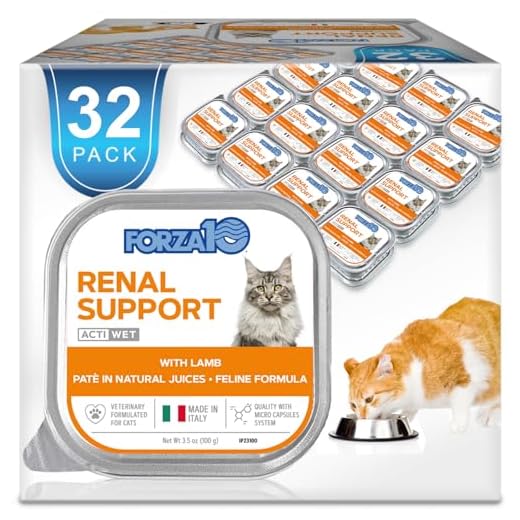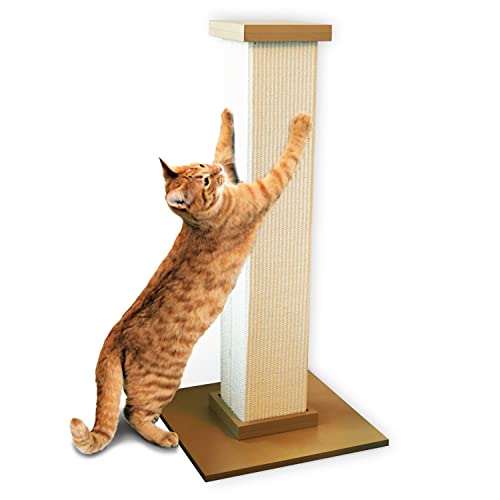



For those of you wondering about my fellow furry friends facing renal challenges, the reality is that survival can extend anywhere from a few months to several years, depending on multiple factors. Early detection and ongoing management play significant roles in enhancing the quality of life.
Diet modifications, hydration, and regular veterinary check-ups are paramount in this situation. A specialized diet, often low in protein and phosphorus, can greatly alleviate stress on the renal system. Ensuring access to fresh water at all times is equally crucial, as hydration directly impacts kidney function.
It’s essential for caregivers to monitor symptoms such as weight loss, vomiting, and changes in appetite or behavior. These indicators may signal progression in health status. By staying vigilant and proactive, the lifespan of those affected can be extended, allowing for more cherished moments together.
Duration of Existence in Cases of Renal Compromise
In my experience, survival periods vary significantly based on several factors. Generally, some companions may continue thriving for months to years following diagnosis.
Key elements influencing longevity include:
- Stage of renal impairment at diagnosis: Early detection often leads to better outcomes.
- Adherence to dietary modifications: Special renal diets can slow progression.
- Regular veterinary check-ups: Monitoring health allows for timely interventions.
- Fluid therapy: Keeping hydrated is essential for maintaining function.
- Overall health and age: Younger individuals may withstand stress better than older ones.
With appropriate care, some individuals enjoy a good quality of life for a significant period. It’s critical to focus on symptom management and supportive therapies to enhance well-being. Regular communication with a veterinarian plays a pivotal role in optimizing care strategies.
Understanding Kidney Failure in Cats
My humans often ask about the signs of this condition. Symptoms like increased thirst, frequent urination, weight loss, and decreased appetite can signal an issue. Regular vet check-ups are crucial for early detection, especially in older felines.
Diagnosis and Monitoring
Veterinarians typically perform blood tests and urinalysis to assess kidney function. These tests help in identifying the severity of the situation. Monitoring creatinine and blood urea nitrogen (BUN) levels provides insights into my health. Keeping an eye on these numbers helps in adjusting treatment plans as needed.
Management and Treatment Options
Diet plays a significant role in managing this condition. Specialized renal diets can support kidney function and improve my quality of life. Hydration is essential; encouraging water intake can slow progression. Medications may also be prescribed to address symptoms and improve overall well-being. Regular follow-ups with the vet ensure that my treatment plan remains effective.
Stages of Kidney Failure and Their Impact on Lifespan
Understanding the various phases of renal insufficiency is critical for managing health effectively. The condition progresses through four distinct stages, each significantly influencing the overall longevity and quality of life.
Stage 1: Early Detection
In this initial phase, symptoms are typically absent or very mild. Regular check-ups can reveal elevated kidney values. With appropriate dietary adjustments and hydration, the prognosis is generally favorable, potentially extending life by several years.
Stage 2: Mild Dysfunction
At this point, symptoms such as increased thirst and urination may become noticeable. Veterinary intervention, including specialized diets and medications, can help maintain kidney function. Lifespan may decrease but still remains manageable, often allowing several additional years with proper care.
Stage 3: Moderate Dysfunction
In this stage, visible signs like weight loss, vomiting, and lethargy appear. Aggressive treatment becomes necessary. While the situation is more serious, many individuals can still enjoy a good quality of life for months to a few years, depending on the response to treatment.
Stage 4: Severe Dysfunction
Severe symptoms manifest, including severe lethargy and loss of appetite. Palliative care and pain management become vital. Life expectancy is significantly reduced, often limited to weeks or a few months. Early intervention in the earlier stages can make a substantial difference in outcomes.
Regular veterinary visits and monitoring are crucial at every stage to adapt treatment as needed. By staying informed and proactive, one can significantly enhance the quality of life throughout the progression of this condition.
Signs and Symptoms of Kidney Failure in Cats
Recognizing the signs of renal issues is vital for timely intervention. Common indicators include:
- Increased thirst: Drinking more water than usual can signal a problem.
- Frequent urination: More trips to the litter box often accompany kidney troubles.
- Weight loss: Unexplained loss of pounds might be a red flag.
- Decreased appetite: Refusal to eat or sudden disinterest in food can occur.
- Vomiting: Frequent vomiting episodes should prompt concern.
- Weakness or lethargy: Low energy levels and reluctance to play may be evident.
- Bad breath: A foul smell can indicate the buildup of toxins.
- Change in coat condition: Dull fur can reflect poor health.
Monitoring these symptoms closely is essential for maintaining health. If you notice any of these signs, consult a veterinarian promptly. Additionally, ensuring appropriate resources, such as litter boxes for multiple cats, can help manage your furry friend’s condition effectively.
Nutritional Management for Cats with Kidney Failure
Choosing the right diet is crucial for maintaining well-being during renal issues. A restricted protein intake, focusing on high-quality proteins, is advisable to reduce the workload on the kidneys. Aim for a protein level between 25% to 30% on a dry matter basis.
Incorporating omega-3 fatty acids, found in fish oil, can help reduce inflammation and support kidney function. A daily supplementation of about 100-200 mg of EPA and DHA is beneficial.
Hydration is paramount. Encourage fluid intake by providing wet food, which contains more moisture than dry kibble. Consider adding water or low-sodium broth to meals to enhance hydration levels.
Look for specialized renal diets that contain lower phosphorus levels, typically below 0.5% on a dry matter basis. This helps to slow the progression of renal disease. Here’s a quick reference table for nutrient management:
| Nutrient | Recommended Levels | Sources |
|---|---|---|
| Protein | 25-30% (high-quality) | Chicken, turkey, fish |
| Omega-3 Fatty Acids | 100-200 mg daily | Fish oil supplements |
| Phosphorus | Below 0.5% | Specialized renal diets |
| Moisture | High (70% or more) | Wet food, broths |
Monitor weight regularly; a gradual weight loss may be necessary to prevent obesity, but significant weight loss should be addressed immediately. Each meal should be balanced to support overall health while considering individual needs.
Treatment Options and Their Effect on Longevity
Regular veterinary checkups are crucial. Early detection leads to more effective management. Medications like ACE inhibitors and phosphate binders help control symptoms and slow progression. Subcutaneous fluids provide essential hydration, which can greatly enhance well-being. This treatment can extend time significantly when administered consistently.
Nutritional Therapy
Specialized diets formulated for renal support are pivotal. Low protein, low phosphorus, and high omega-3 fatty acids promote kidney health. These diets not only alleviate stress on failing organs but also improve quality of life. Transitioning to such nourishment should be gradual, ensuring acceptance and proper digestion.
Alternative Treatments
Incorporating supplements such as omega-3 fatty acids and antioxidants offers additional support. Herbal remedies may also provide benefits, but consultation with a veterinarian is essential before introduction. Acupuncture and other holistic approaches can enhance comfort and reduce stress, potentially contributing to a longer lifespan.
Monitoring and Care Strategies for Feline Renal Issues
Regular vet check-ups are key. I recommend scheduling these every six months to monitor kidney function. Blood tests and urinalysis help track the progression of renal disease, ensuring timely adjustments to treatment plans.
Hydration is Critical
Encouraging hydration is essential. Provide fresh water daily and consider a water fountain to make drinking more appealing. Wet food can also help increase fluid intake. Aim for at least 60-70% of their daily diet to be moisture-rich.
Environmental Comfort
Creating a stress-free environment promotes well-being. Ensure a quiet, comfortable space for rest and relaxation. Familiar toys and bedding can provide reassurance. Monitor behavior for any signs of discomfort or distress, adjusting the environment accordingly.
Incorporate gentle play and interaction, as mental stimulation can enhance happiness. For those looking for cleaning solutions, a best pressure washer for mobile valeting can keep the living space tidy, contributing to a healthier atmosphere.










